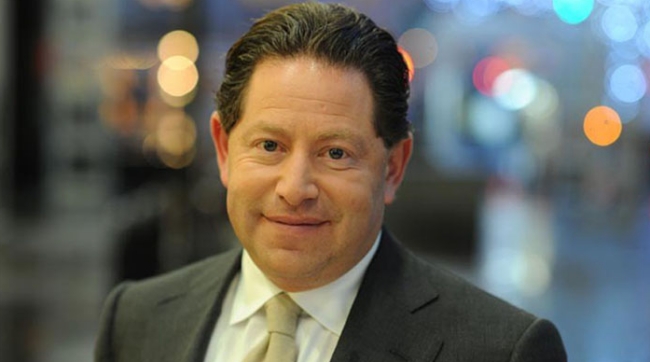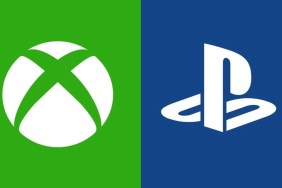The past couple of weeks have been centered on the California Department of Fair Employment and Housing’s lawsuit against Activision Blizzard, which alleges a discriminatory “frat boy” culture that has created unequal and unsafe working environments for women at the company. Since the lawsuit was filed, Activision Blizzard executives have issued a gamut of responses ranging from outright dismissive denials of the claims made within, to a more gentle-toned email that read like it was spit out by a “so your company has been accused of sexual harassment and inequality” generator. Notably, that change in tone came shortly after those Activision Blizzard stock values started to see a decline, and just ahead of the investor earnings call earlier this week. We can draw our own conclusions.
“Don’t listen to what they say. Watch what they do,” Gary Whitta said on Kinda Funny Games Daily. Whitta’s no-bullshit approach to the topic argues that the C-suite executives like to say lots of pretty things to try and appease people (read: shareholders), without actually putting their money where their blanket corporate statements are. It’s easy to say nice things while staring at a yearly salary far more than most people will make in their entire lives.
“There is no place anywhere at our Company for discrimination, harassment, or unequal treatment of any kind,” Kotick writes in his first letter. Yet he hasn’t indicated that he’s willing to give up or even reevaluate executive compensation that is more than a little unequal. There’s a sick irony in a person who makes hundreds of millions a year discussing “unequal treatment” regarding employees who can often barely make it from paycheck to paycheck. There’s also a massive lack of transparency regarding compensation and pay across the company. While statements from Activision Blizzard executives have tried to claim that there aren’t pay, workload, and expectation discrepancies between men and women, evidence says otherwise (much of it noted in the DFEH lawsuit that kicked everything off). And without offering that level of transparency and empowering workers, corporate statements decrying “unequal treatment” are just lip service.
Similar promises have been spit out with little to no backing to them. Activision Blizzard executives have made it rather clear that they don’t want to come to the table with this. They want to find the easiest, quickest, and cheapest way to brush it off and get back to marketing the next Call of Duty. The hiring of law firm WilmerHale to review internal policies angered Activision Blizzard employees due to its notoriety for siding with corporate interests and squashing worker movements. A new coalition of employees called the ABK Workers Alliance shows that they aren’t willing to accept this kind of lip service quietly.
If a company wants to inspire change in a network of nearly 10,000 employees, that change needs to start at the top. Yet for years, Activision Blizzard has shown that the priority at the top is profit above all else. Profit that often doesn’t make its way to those workers on the front lines. Profit that keeps toxic leaders and abusers in positions of power. Profit that requires an entire network of diverse studios to focus largely on Call of Duty because it’s the company’s golden goose.
Now, these Activision Blizzard issues aside, I enjoy Call of Duty. There’s a reason it’s the biggest first-person shooter franchise in the world. And that reason is the developers and passionate teams that make the games. It’s not Bobby Kotick or Fran Townsend. It’s the thousands of other Activision Blizzard employees that make these games what they are. I came to appreciate Call of Duty much more after actually visiting Treyarch and talking to the devs in the lead up to Black Ops 3, getting to meet the team and see the passion that goes into development. Yet you’d be hard pressed to find that same kind of passion at the top, unless it can directly translate to the bottom line and please the shareholders.
Take this tweet from Avani Jain, Production Coordinator at Treyarch, for example. Despite everything that is going on with Activision Blizzard, she is excited for the work she’s done on the upcoming Season 5 of Black Ops Cold War. Kotick and Townsend didn’t work on Season 5. Jain, and hundreds of other developers did. They deserve attention and praise for this thing that they’ve made.
It feels weird promoting content right now, but I’m still proud of the work I’ve done on Season 5. This one is special to me because it’ll be my first content launch as part of the production team. One more week #BlackOpsColdWar https://t.co/Uk4OTZIz0h
— Avani Jain (@avvjain) August 3, 2021
Yet mismanagement and the inability to contain a rampant sexist and discriminatory culture leaves a major cloud hanging over the work that the very people who are affected have done and are still doing at Activision Blizzard’s various development studios. It’s a question I’ve regularly asked myself: how do you continue to support the work of the Activision Blizzard employees who are pushing for change while not distracting from the problems at the top? How do you hold millionaire executives accountable, and still prop up the developers and the work they do, many of whom are women, when that work lines the pockets of the C-suite? There’s no perfect answer, and that target will be ever-moving as we continue to navigate and address this industry-wide issue.
In a hilariously ironic twist, Kotick opened the Activision Blizzard investor call saying he wants the company to “set the example in the industry” on handling “discrimination, harassment, [and] unequal treatment.” Kotick must have that quote written on a sticky note on his monitor: “There is no place at our company for discrimination, harassment, or unequal treatment.” He’s used it numerous times now. However, for a company wanting to set the example, there sure doesn’t seem to be a lot of actionable evidence to provide a roadmap for other companies (unless that roadmap is how to insulate the executive team at the top while failing to come to the table with the affected employees, who have repeatedly reached out and made very clear demands).
In fact, Activision Blizzard can’t and won’t even come close to touching the kind of examples that other companies and developers have set—which is to have positive systems in place that support employees and squash toxic cultures from the get-go. I’m sorry, but Kotick can’t even dream of coming close to the example a company like Bungie has set up in being a diverse, inclusive, equal, and safe place to work. That requires years of building on a solid foundation, not slapping a coat of paint on everything alongside some flowery corporate speak as the house burns around you.
For all the blustering at the top, Activision Blizzard employees aren’t left with much confidence in a system that has already failed them. Repeating the same mantra of “There is no place at our company for discrimination, harassment, or unequal treatment” doesn’t automatically make it true. A longstanding exec like Kotick needs to come to grips with one of two realities: Either he was aware of the issues and has done nothing to fix them, or he was completely blind to what was going on beneath him. Either way, that would require him to be held accountable and admit that he’s failed the company he sits at the head of.
Boilerplate responses to appease shareholders lack empathy, accountability, and action; generic promises that won’t result in much change unless Kotick and other executives are willing to take a significant hit at the top in favor of the almost 10,000 employees at Activision Blizzard. Self-interest must come second. Profit must come second. Activision Blizzard’s first and only priority needs to be the employees that are directly affected. And for the executives, that’s going to require some discomfort on their part, but compared to the issues employees at the bottom face, it’s the least we could ask of them.
Daily Reaction reacts to the video game industry. Have suggestions for the column or subjects you’d like us to react to? Let me know in the comments below and be sure to check out previous Daily Reactions for more dives beyond the headlines.










